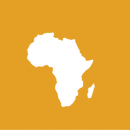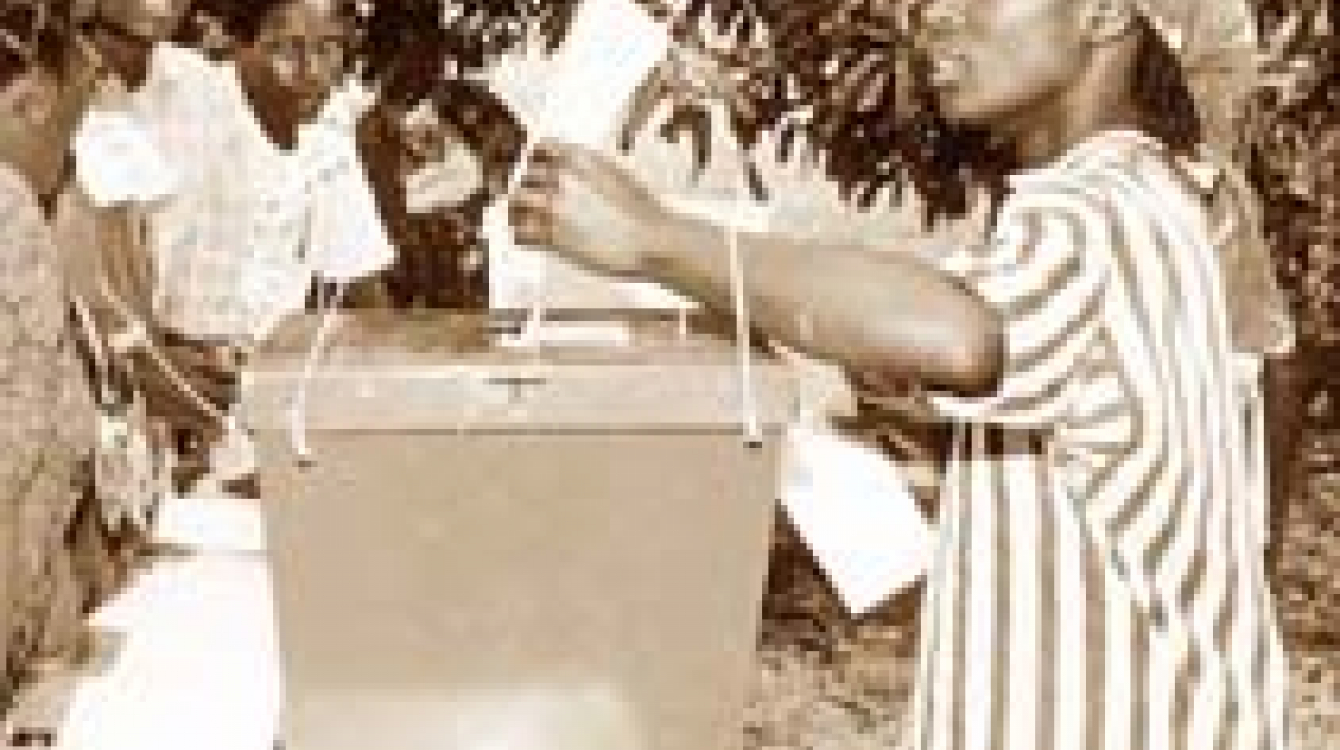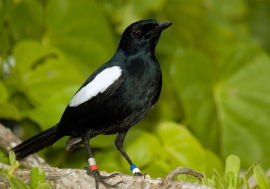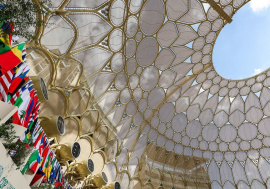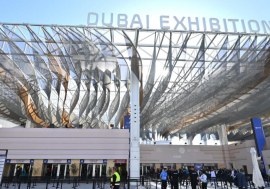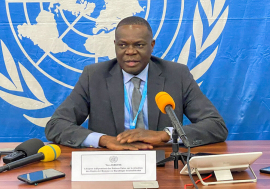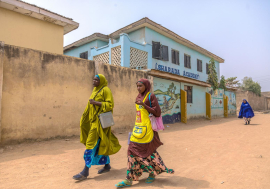Poverty 'stalls' further spread of democracy
The rapid expansion of democracy in sub-Saharan Africa since 1990 has been accompanied by widening and deepening poverty -- producing a "stall" in the further spread of democracy, and, in a few cases, a return to dictatorship and internal conflict. Those findings, contained in the UN Development Programme (UNDP) Human Development Report 2002, point to a simple conclusion, said UNDP Administrator Mark Malloch Brown. "To promote human development successfully we need to put the politics back into poverty eradication.... Unless governments can demonstrate to their citizens that they are taking successful action on bread and butter issues ... the dramatic expansion of democracy risks going in reverse." By the end of 1999, 29 sub-Saharan African countries, including 77 per cent of the region's population, had established multi-party democracies. Elections have spread in Africa, but democracy remains weak. Photo : ©UN / P. Sudhakaran But the spread of democracy has not brought the anticipated boost to development. Of those sub-Saharan countries with sufficient data, 23 are not on track to achieve the internationally agreed Millennium Development Goals for sharply reduced poverty, illiteracy and infant mortality rates by 2015, UNDP reports.The problem is not that democracy is unrelated to development, Mr. Malloch Brown said, but that democratic institutions in many developing countries are too weak. "In too many countries, governments act as if democracy stops when the polling booths close. What is now urgently needed is a second wave of democratization ... deepening the practice of democratic government." ******* Congo: New hope for peace?Recent African diplomatic initiatives have fanned cautious hopes for the end of the devastating four-year conflict in the Democratic Republic of Congo (DRC). On 30 July Rwandan President Paul Kagame and DRC President Joseph Kabila initialled a South African-sponsored accord requiring the DRC to disarm thousands of Rwandan Hutu militiamen operating in eastern Congo since their participation in the genocidal massacre of as many as 1 million people in Rwanda in 1994. In return, the Rwandan government agreed to withdraw its troops from DRC soil.Two weeks later, representatives of the DRC and Uganda agreed to the final withdrawal of Ugandan forces from north-western Congo and the normalization of relations between the two countries. The pact was initiated by Angola and signed in Luanda on 15 August. The Ugandan withdrawal will be monitored by Angolan troops deployed in the DRC at the invitation of Mr. Kabila's government. Uganda, Rwanda and their Congolese allies have fought against the government, which has been supported by Angolan, Zimbabwean and Namibian forces. Namibian troops have already withdrawn from the DRC, and Zimbabwe Defence Minister Sidney Sekeramayi announced on 5 August that Harare would soon follow suit.The 30 July agreement was welcomed by the UN Security Council, which pledged to support its implementation within the mandate of the UN peacekeeping mission in the DRC. The accords received a sceptical response from many analysts and observers, however. They note that the opposing governments have made and broken many past peace agreements and may not be able to impose a settlement on their Congolese allies -- even if the political will now exists. ******* Public services not under threat, says WTOOutgoing World Trade Organization Director-General Mike Moore has reassured developing countries that public services will not be targeted for privatization during the current phase of negotiations to liberalize trade in services. Developed nations "can and will ask for the moon," said Mr. Moore, who left office at the end of August. "That doesn't mean they'll get it. Governments cannot be forced to undertake opening of their public sectors."Developing countries fear that multinational corporations would target such vital public services as education, health and water distribution (see Africa Recovery, April 2002).In July, WTO members negotiating the General Agreement on Trade in Services (GATS) began making "requests" for market access. Mr. Moore emphasized that such requests did not constitute binding agreements.GATS already exempts public services from liberalization if they are not supplied on a commercial basis, but confusion remains on the extent of such exemption. Critics argue that developed countries could pressure weaker nations to liberalize. But Chile's WTO ambassador, Mr. Alejandro Jara, noted that each negotiating government "has the unequivocal right to choose which services it wishes to open up ... and under what conditions." ******* WHO urges monitoring of traditional medicineThe World Health Organization (WHO) is calling on developing countries to better monitor and regulate traditional medicine. About 80 per cent of all Africans rely to some extent on traditional, village-based practitioners and remedies, since manufactured medicines or regular health care services are often unavailable or too expensive. Although developing nations rely extensively on traditional medicine -- and herbal remedies are becoming increasingly popular in some developed countries -- the sector is poorly regulated, if at all.The WHO's "Strategy for Traditional Medicine," released early this year, urges countries to adopt legislation and develop regulations for traditional medicine, to help provide safer and more effective care. The agency commends Nigeria, Ghana, Lesotho and other African countries that have developed health care training programmes for traditional birth attendants.

